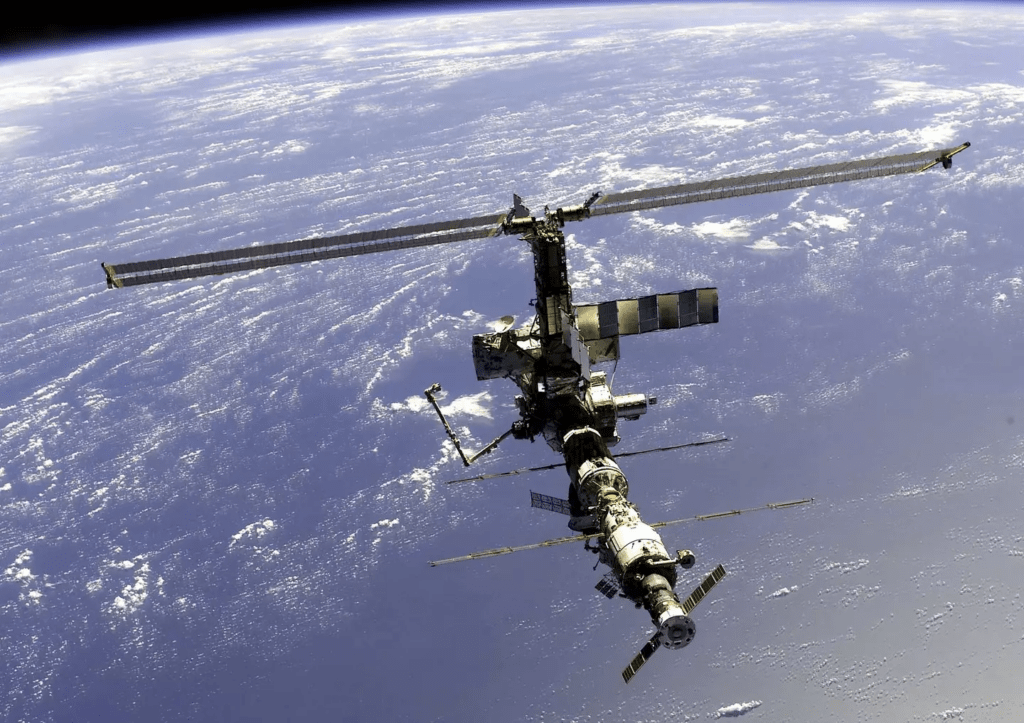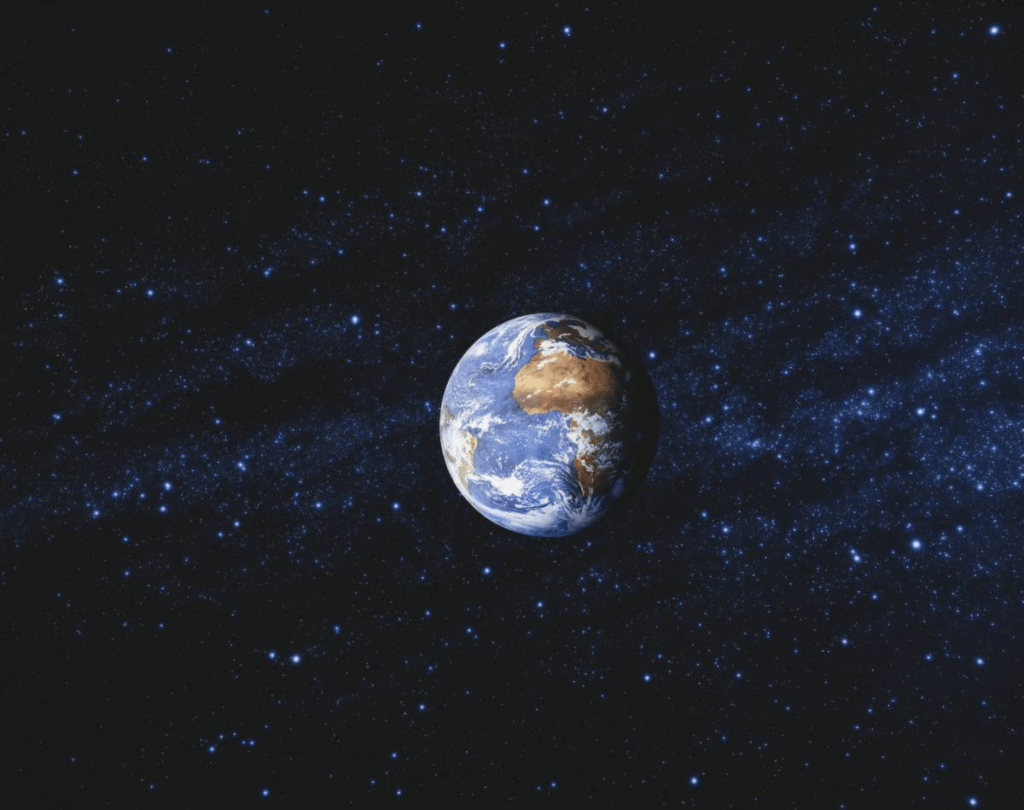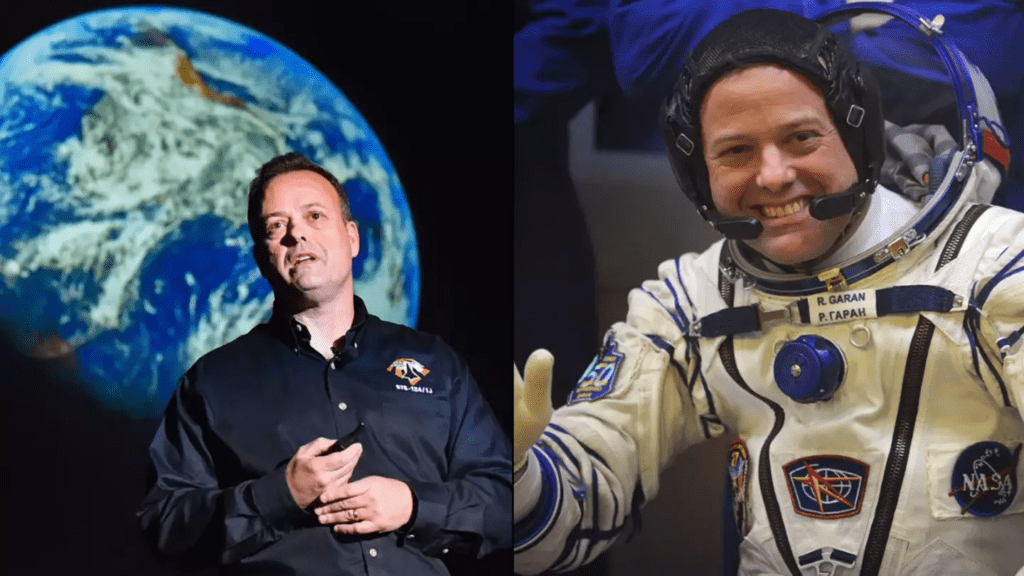Imagine floating in the vastness of space, looking down at our beautiful blue planet. What would you see? What would you feel? For NASA astronaut Ron Garan, this experience was not just awe-inspiring—it was life-changing.
The Man Who Saw Earth Differently
Ron Garan isn’t your average stargazer. After spending a whopping 178 days aboard the International Space Station (ISS), he came back to Earth with a message that’s making waves: We’re living a lie, and it’s time for a wake-up call.
In a recent conversation with Big Think, Garan opened up about his profound cosmic epiphany. “From up there,” he said, gesturing toward the sky with a sense of awe, “things become undeniably clear.” But what he witnessed from space went far beyond the mesmerizing beauty of Earth’s blue oceans and swirling clouds. It was a stark reality check that challenged his—and our—understanding of our place in the cosmos.
As he floated above the planet, the sheer fragility of Earth’s atmosphere struck him. What he saw was a delicate, thin shield of air protecting all life on Earth, yet barely noticeable against the vast backdrop of space. This vulnerability underscored the critical need to rethink how we treat our environment. “From that altitude, the problems we’re facing—like deforestation, climate change, and environmental degradation—aren’t just distant challenges. They’re glaringly obvious symptoms of a deeper issue: our disconnection from the planet and each other,” Garan explained.
For Garan, this shift in perspective was more than a personal revelation. It was a wake-up call for humanity, a realization that we are all deeply interconnected and that the fate of the Earth rests in our collective hands. His time in space exposed the urgency of addressing these global issues, but it also sparked a new hope—that by changing the way we see our planet, we can inspire real, transformative change.

A Paper-Thin Shield
Picture this: You’re gazing out of the window of the International Space Station. Below you, lightning storms burst across the Earth’s surface like the rapid flash of paparazzi cameras. Auroras swirl and shimmer in vibrant hues, so close it feels as though you could reach out and run your fingers through their glowing curtains. The beauty is awe-inspiring, but then something unsettling catches your eye—our atmosphere. The very layer keeping all life on Earth safe looks frighteningly thin, a fragile veil against the vast, unforgiving expanse of space.
“It’s like a paper-thin layer,” Garan explained, his voice filled with both wonder and concern. “That’s all that stands between us and the harsh emptiness of space.” That fragile bubble, as delicate as it appears from orbit, is the shield protecting our entire planet from extreme solar radiation, meteoric impacts, and the cold void beyond. Yet from down here on Earth, this life-preserving shield often fades into the background, rarely considered in our day-to-day lives. It’s an afterthought—overshadowed by economic growth, industrial ambitions, and short-term priorities.
What Garan’s view from space makes painfully clear is just how vulnerable we are. We often take the air we breathe and the atmosphere’s protection for granted, forgetting its delicate balance. He urges us to realize that while this protective layer may seem infinite from our limited ground-level perspective, it is, in fact, dangerously fragile. In a world where environmental degradation, pollution, and climate change relentlessly strain this precious resource, Garan’s experience serves as a reminder that we must prioritize its preservation. The Earth may be our home, but without its atmosphere, life as we know it wouldn’t exist. It’s time to treat that thin, fragile layer with the respect and urgency it demands.
The Big Picture We’re Missing
Garan’s time in space gave him a front-row seat to what scientists call the “overview effect.” It’s not just a fancy term—it’s a profound shift in perspective that hits astronauts when they see Earth suspended in the darkness of space.
“It hits you like a ton of bricks,” Garan said, leaning forward intently. “Suddenly, you realize how interconnected we all are. There’s no ‘us versus them’ up there. It’s just… us.”
This cosmic view revealed something crucial: the problems we often fret about—climate change, deforestation, global warming—they’re just symptoms. The real issue? Our inability to see the big picture.

Breaking Free from the Cave
Garan’s message isn’t all doom and gloom. In fact, he’s brimming with optimism about humanity’s potential to overcome its current challenges. “We’re at a crossroads,” he explained, his eyes lighting up with passion. “When we finally break free from this two-dimensional ‘us versus them’ mindset and embrace the true multidimensional reality of our universe—that’s when the magic happens.” For Garan, this shift in perspective represents more than just a philosophical change; it’s a turning point in our evolution as a species. He believes that by recognizing our deep interconnectedness and shared fate, humanity can unlock untapped creativity, compassion, and collaboration. This new outlook, according to Garan, has the power to not only transform our approach to global issues like climate change, inequality, and conflict, but also to inspire a generation of problem-solvers and visionaries. It’s a call to action that goes beyond science and space exploration—it’s about redefining our role as stewards of the planet, and embracing a future that prioritizes unity, sustainability, and a shared vision of hope.
He likened our current state to being trapped in a cave, seeing only shadows of reality. “But we can leave the cave,” he insisted. “We can step into a future that we’d all want to be part of. It’s not just possible—it’s our true calling.”
A Call to Action
So, what does this mean for us earthbound folks? Garan’s perspective pushes us to think far beyond our immediate surroundings. The environmental crises we face—deforestation, global warming, and climate change—are pressing, but their solutions require more than policies and quick technological fixes. We need a fundamental shift in how we view our role on this planet and our connection to the wider universe.
Our continued exploration of space serves as a reminder that Earth is fragile, and we must act with a greater sense of responsibility. By recognizing our shared fate on this small blue planet, we can begin taking meaningful steps toward a sustainable future.
Related Content
- Tech and Ecology News Roundup: NordVPN, UK Tech, AI, WordPress, and Climate Change
- The Rising Threat of Methane: A Global Challenge
- Percy’s Promising Find: A New Chapter in the Search for Extraterrestrial Life
- Invasive Plants and the Energy-Climate Nexus: A Growing Threat to Biodiversity and Beyond
- Solar Panels on the Alps: Switzerland’s Bold Gamble with Nature
- I saw Earth from space and realised we’d been living a lie’
- How astronauts change in space as man who spent 178 days
- Astronaut shares the profound ‘big lie’

